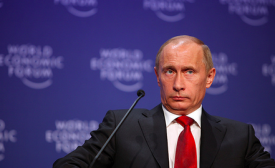united states
After the World Trade Center attacks in 2001, al-Qaeda became one of the great modern bogeymen, claiming credit for terrorist attacks all over the world. However, the jihadist group is less a centralised organisation than a loose coalition of franchises, writes Annabelle Quince.
Public Diplomacy: A Global Phenomenon
In 2013, at least 136 countries were active in public diplomacy, both as principals and/or receivers, and PD activity took place in every region of the world. As represented in Figure 1, the United States, China, India, Russia, Israel, and the United Kingdom were the most mentioned actors in PD stories throughout the year.
In December 2012, Shaun Donovan, the secretary of Housing and Urban Development, was on vacation in Berlin when he decided to detour to the Netherlands. He wanted to get a firsthand sense of the famed Dutch approach to water management.
The conventional wisdom on U.S. alliances in Asia, at least in the West, Japan, and Taiwan (but not necessarily in South Korea), is that they are broadly a good thing. One hears this pretty regularly from U.S. officials and the vast network of U.S. think tanks and foundations, such as the Center for Strategic and International Studies and the American Enterprise Institute, and their many doubles in Asia.
Christoph A. Geisler, MIMA Media founder and current MPD candidate speaks about the importance of public diplomacy during geopolitical crises. The “Band Together” program, co-sponsored by the U.S. Consulate in St. Petersburg and MIMA Music, teaches songwriting, recording, and filmmaking by bringing American facilitators to train Russian musicians and NGO leaders in these skills. St. Petersburg Public Affairs Officer Steven J. Labensky states, “I think more important sometimes than the diplomats speaking to each other, are people speaking to each other.”
Immigration policy was the first weapon used to punish Vladimir Putin and his cronies following their Crimean consumption. Travel sanctions were imposed and U.S. visas denied to a handful of Putin colleagues with the intended message being: You are criminals and unwelcome in the United States.
Radio Free Europe/Radio Liberty and the McCain Institute present a discussion on Russian Propaganda and Russian minorities in Eastern Europe.

Immigration policy was the first weapon used to punish Vladimir Putin and his cronies following their Crimean consumption.
Travel sanctions were imposed and U.S. visas denied to a handful of Putin colleagues with the intended message being: You are criminals and unwelcome in the United States.







